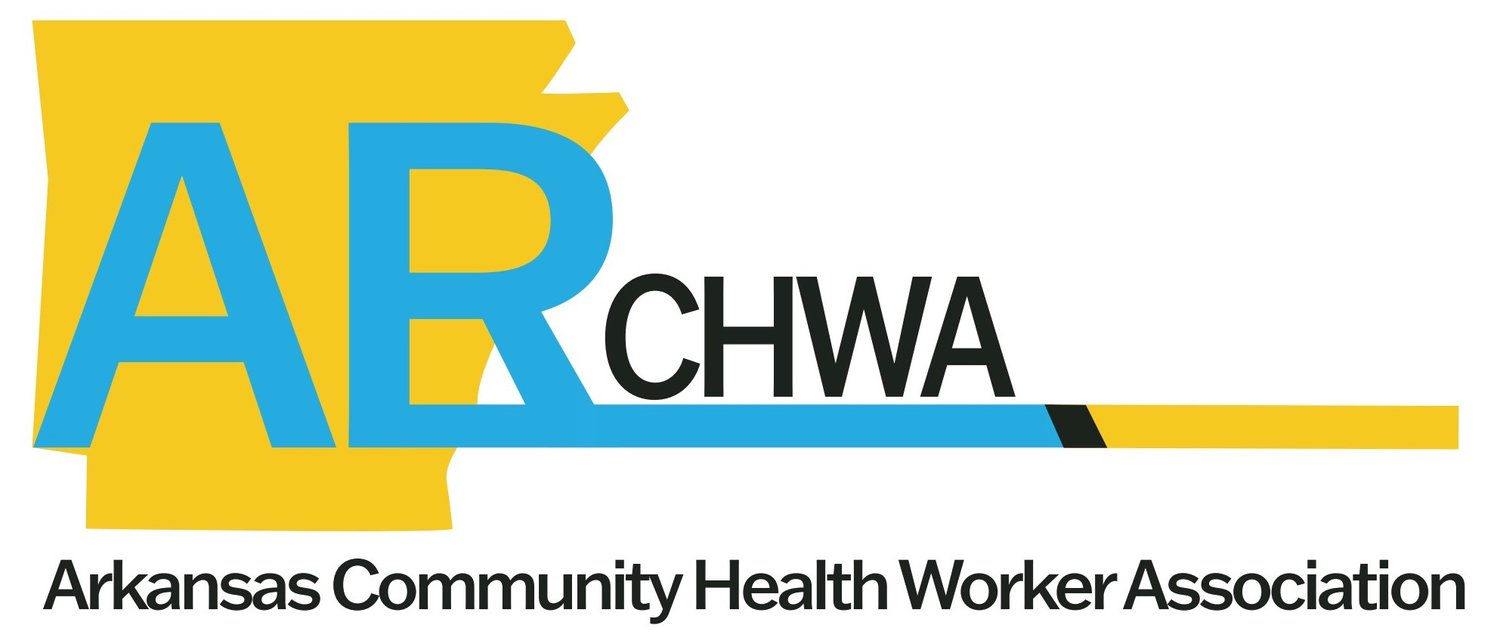CHW ESSENTIAL INFORMATION
What is a Community Health Worker?
ARCHWA has adopted the American Public Health Association definition of a Community Health Worker (CHW) as follows “a community health worker is a frontline public health worker who is a trusted member of and/or has an unusually close understanding of the community served. This trusting relationship enables the worker to serve as a liaison/link/intermediary between health/social services and the community to facilitate access to services and improve the quality and cultural competence of service delivery.”
ARCHWA also recognizes the definition set forth by the Bureau of Labor Statistics as follows “21-1094 Community Health Workers: Promote health within a community by assisting individuals to adopt healthy behaviors. Serve as an advocate for the health needs of individuals by assisting community residents in effectively communicating with healthcare providers or social service agencies. Act as liaison or advocate and implement programs that promote, maintain, and improve individual and overall community health. May deliver health-related preventive services such as blood pressure, glaucoma, and hearing screenings. May collect data to help identify community health needs. Excludes “Health Education Specialists.”
What are the roles and core competencies of a CHW?
ARCHWA has adopted the roles and core competencies as outlined in the 2018 C3Project.
Core Roles:
1. Providing cultural mediation among individuals, communities, and health and social service systems
2. Providing culturally appropriate health education and information
3. Providing care coordination, case management, and system navigation
4. Providing coaching and social support
5. Advocating for individuals and communities
6. Building individual and community capacity
7. Providing direct services
8. Implementing individual and community assessments
9. Conducting outreach
10. Participating in evaluation and research
Core Competencies
1. Communication skills
2. Interpersonal and relationship-building skills
3. Service coordination and navigation skills
4. Capacity building skills
5. Advocacy skills
6. Education and facilitation skills
7. Individual and community assessment skills
8. Outreach skills
9. Professional skills and conduct
10. Evaluation and research skills
11. Knowledge base
What activities are within the scope of practice of a CHW?
Sample activities within the CHW scope of practice include:
• Conducting initial interviews with new clients
• Supporting clients in better understanding and communication their own questions, resources, knowledge, and options for action and services
• Providing culturally and linguistically appropriate health education and information
• Supporting clients in changing behaviors
• Building trust with clients
• Providing case management services
• Interpretation and translation services
• Accompanying clients to appointments
• Determining eligibility status
• Retention of clients
• Home visiting
• Community organizing
• Support and peer group facilitation
• Medication and treatment adherence
• Advocating for community and individual client needs
• Assisting clients with access
• Social determinants/drivers of health risk assessments
• Recruitment of clients or research study participants, including the provision of informed consent
• Management of projects
• Leadership of a team of CHWs
Sample activities that are outside of the CHW scope of practice include:
• Diagnosing illness and other health conditions
• Prescribing treatment or medication
• Providing formal counseling or professional therapy
• Providing advice on legal or medical issues
• Providing any service that requires a license or registration issued by a professional licensing board or oversight body
To check out a comprehensive healthcare career comparison, please see this comparison by the Community Health Worker Collaborative of South Dakota.
Do CHWs have to be certified in order to work in Arkansas?
No. Certification for CHWs is a voluntary process in Arkansas. Certification is overseen by a 21-member, majority CHW, certification commission. Individuals are eligible to apply for certification through three different pathways: 1) after four years of full-time CHW experience, 2) after 2 years of full-time CHW experience and completing an approved CHW core competency training program or 3) after 1 year of full-time CHW experience and completing an approved CHW apprenticeship program.
For detailed application information, please visit the ARCHWA website.
What are common job titles for CHWs?
Nationally and in Arkansas, CHWs have been identified by many titles. The below table lists self-identified CHWs who attended the 2023 annual CHW summit in Arkansas. Please note that some of these roles may require degrees and/or additional qualifications as determined by the employer.
Benefits Counselor
Community Health Advocate
Latin Outreach Coordinator
Bilingual Outreach Specialist
Community Health Care Specialist
Manager Outreach Relations
Care Advocate
Community Health Coordinator
Marshallese Medical Interpreter/Translator
Career Coach
Community Health Manager
MHU Coordinator/Health Program Specialist
Case Management Supervisor
Community Liaison
Mobile Health Unit Driver
Case Manager
Community Organizer/Navigator
Outreach Associate
Certified Pharmacy Technician
Community Outreach Coordinator
Outreach Associate/ Clinical Interpreter
CHW
Dental Care Advocate
Pastor
CHW II
Director of HIV Prevention & Education
Peer Specialist
CHW Mentor / Community Program Manager
Education Coordinator
Peer Support Apprentice
CHW, Certified
Health Navigator
Peer Support Specialist
CHW, Volunteer
Health Outreach Coordinator
Program Coordinator-Intermediate
Clinic Manager
Health Program Specialist
Senior Project Manager
Clinical Interpreter
Healthy Start Care Coordinator
Services Director
Community Development Coordinator
Lactation Specialist
Victim Outreach Services Outreach
Where do CHWs Work?
Clinics and Medical Offices
Community-Based Organizations
Community Health Centers
Cooperative Extension Offices
Correctional Facilities
Federally Qualified Health Centers
Government Agencies / State Health Departments
Hospitals / Academic Health Centers
Non-profit Organizations
Pharmacies
Police Departments
Private Healthcare Insurance Plans
Public Libraries
Schools, Colleges and Universities
Social and Human Service Agencies
